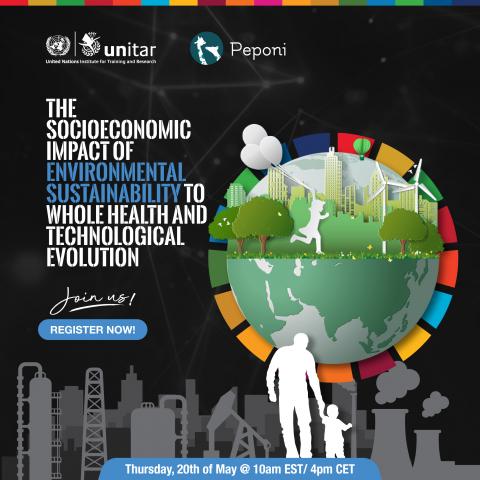
UNITAR Online Catalogue
The Socioeconomic Impact of Environmental Sustainability to Whole Health and Technological Evolution

Personas
Antecedentes
Maslow’s hierarchy of needs has governed the blueprint of urban development for generations with the guiding principles being food, shelter and clothing needed to survive. However, this hierarchy has gaps in adaptability, sustainability, equity and technological advancement.
The needs required to survive and those required to thrive are two very different things. An individuals quality of life and dignity needs to be taken into account in order to address social injustices such as inequity, climate change, environmental and systematic racism, corporate responsibility, economic and wealth disparities and more.
Cities are rethinking urban spaces not only from the perspective of health but ecology and equity. This has created the need for an adjustable, equitable and sustainable blueprint for development based on what is required to thrive not just survive.
Objetivos del evento
Join UNITAR and Peponi Conservation for this exciting panelist discussion to learn more on:
1) What does Whole Health mean?
2) What is the link between Financial Health and Equity?
3) How does Physical Health and Environmental Sustainability play a role?
4) Understand the importance and cohesion between mental health, hygiene, emotional health and spiritual awareness.
Objetivos del aprendizaje
1) What does Whole Health mean?
2) What is the link between Financial Health and Equity?
3) How does Physical Health and Environmental Sustainability play a role?
4) Understand the importance and cohesion between mental health, hygiene, emotional health and spiritual awareness.
Contenido y estructura
This event brings together representatives from these key stakeholder groups to discuss in practical terms the measures governments and other stakeholders can take to ensure that this vital component of our societies is not left behind – now more than ever.
Público objetivo
Participation is open to government officials, diplomats, staff of international organizations, development practitioners, faculty members, and administrators of educational institutions.